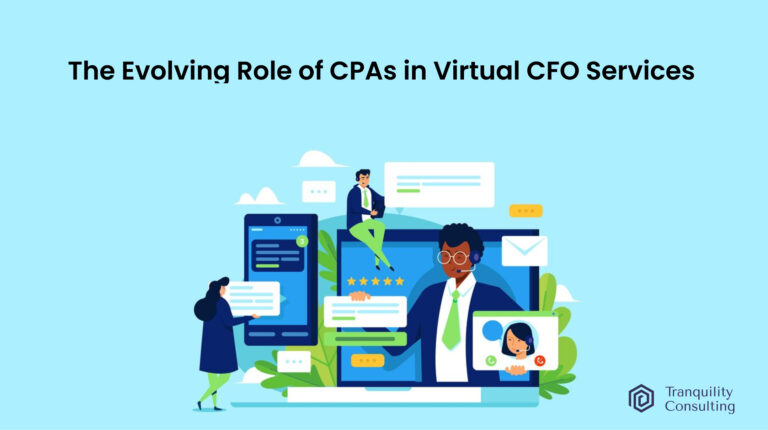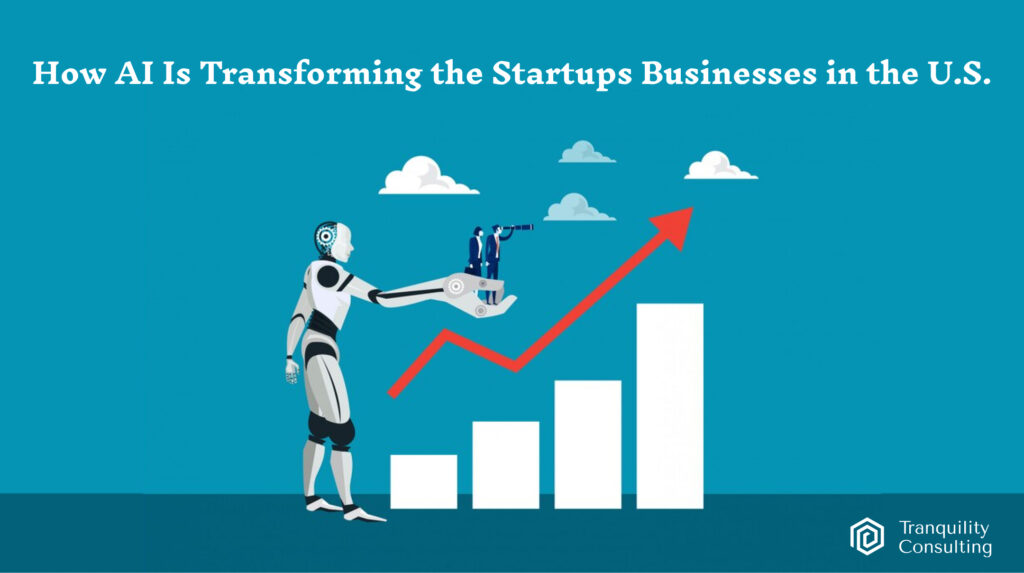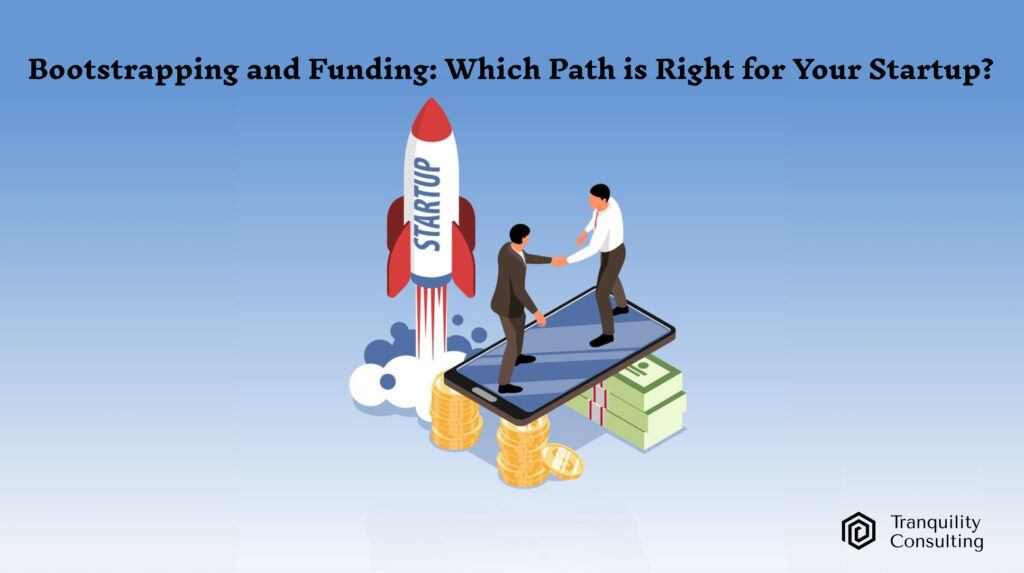In today’s dynamic business landscape, Virtual CFO services have emerged as a game-changer for organizations seeking top-tier financial expertise without the costs of hiring a full-time CFO. Certified Public Accountants (CPAs) are uniquely positioned to transition into this growing role, providing businesses with a strategic partner who goes beyond traditional accounting to drive financial planning, business risk management, and strategic advisory services. This blog explores the evolving role of CPAs in Virtual CFO services, highlighting their responsibilities, skills required, and future trends.
Introduction
As businesses increasingly rely on digital transformation, the demand for Virtual CFO services has surged. A Virtual CFO offers businesses the expertise of a Chief Financial Officer without needing an in-house full-time hire. Traditionally seen as accounting and tax services experts, CPAs are now evolving to take on more strategic roles within businesses. This transition represents an exciting development for CPAs looking to leverage their analytical skills and deep understanding of business financials.
Understanding Virtual CFO Services
Virtual CFO services provide businesses access to financial management expertise tailored to their needs, allowing companies to scale while maintaining financial oversight. Unlike traditional CFOs, a Virtual CFO works remotely and flexibly, offering financial reporting, cash flow management, budgeting, and forecasting services. In addition to financial planning and analysis, Virtual CFOs play a vital role in ensuring businesses remain compliant with tax laws, manage business risks, and provide strategic advisory for long-term growth. The demand for these services has risen, especially among small and medium-sized enterprises (SMEs), as it offers a cost-effective solution without compromising expertise.
Role of CPAs
CPAs have been viewed as essential players in maintaining a business’s financial health. Their role has predominantly revolved around ensuring the accuracy of financial records, tax preparation, auditing, and compliance with accounting standards. CPAs are also critical in providing advice on regulatory requirements and financial reporting. As the business environment has become more complex, the role of CPAs has expanded beyond traditional accounting functions. Many businesses now look to CPAs for strategic advice, forecasting, and budgeting to enhance decision-making processes. This evolution has paved the way for CPAs to transition into the role of Virtual CFOs, bringing both accounting expertise and business insights to the table.
Transition to Virtual CFO Roles
The shift from traditional CPA duties to becoming a Virtual CFO requires a change in mindset. CPAs moving into this role must move beyond focusing solely on compliance and financial reporting to embrace a more holistic, forward-thinking approach. They must evolve from “numbers people” to trusted advisors who influence business decisions and strategy. The growing reliance on cloud-based accounting software and digital tools has facilitated this transition, making it easier for CPAs to offer Virtual CFO services remotely. With automation taking over routine tasks, CPAs can now focus on providing financial planning and strategic insights that help businesses develop in today’s competitive market.
Key Responsibilities of a Virtual CFO Service
As a Virtual CFO, CPAs take on various responsibilities critical to a business’s success. Here are some of the key areas where Virtual CFOs add value:
- Financial Planning and Analysis: Virtual CFOs offer businesses financial planning services, ensuring the company maintains healthy cash flow, stays within budget, and plans for future growth. This involves preparing detailed financial reports, conducting analysis, and developing forecasts based on historical data and future projections.
- Strategic Advisory: One of the most crucial roles of a Virtual CFO is offering strategic advisory to business owners. This means advising on investment opportunities, expansion plans, cost-saving measures, and other critical decisions that impact long-term growth. The ability to provide actionable insights helps businesses make informed decisions, positioning them for success in an evolving market.
- Business Risk Management: Risk management is another key responsibility for Virtual CFOs. Whether mitigating financial risks, ensuring compliance with regulations, or assessing the financial implications of business decisions, Virtual CFOs play an essential role in maintaining a business’s financial stability.
- Cash Flow Management: Cash flow is the lifeblood of any business, and a Virtual CFO helps to ensure that a company remains financially solvent. They monitor and manage cash inflows and outflows, ensuring the industry has enough liquidity to meet its obligations and invest in growth opportunities.
- Budgeting and Forecasting: Virtual CFOs assist in setting realistic budgets and forecasting future financial performance. This process includes reviewing past performance, assessing market trends, and developing detailed financial models to predict future outcomes. Effective budgeting and forecasting enable companies to avoid financial pitfalls and achieve long-term goals.
Future Trends in Virtual CFO Services
As businesses increasingly embrace digital tools and technology, the demand for Virtual CFO services will only grow. Several trends are shaping the future of this space, including:
- AI and Automation: Automation is already transforming how CPAs and CFOs operate, with AI-powered tools taking over routine accounting tasks. Virtual CFOs will continue to leverage these tools to streamline processes, reduce human error, and focus on offering more strategic services. Automation frees Virtual CFOs to spend more time on financial planning, business strategy, and risk management.
- Real-Time Financial Reporting: As businesses move towards real-time financial reporting, Virtual CFOs must adopt advanced analytics tools that provide immediate insights into a company’s financial health. This trend will enhance their ability to offer timely advice and guide decision-making based on up-to-the-minute data.
- Outsourced CFO Services: Outsourcing CFO services is becoming more common, especially among SMEs needing financial expertise without a full-time hire. As companies look for more flexible and cost-effective solutions, the role of Virtual CFOs will expand, with more CPAs transitioning to this model.
- Increased Focus on ESG: Environmental, Social, and Governance (ESG) factors are becoming crucial to businesses. Virtual CFOs must adapt by incorporating ESG metrics into financial planning and reporting. This trend will elevate the strategic importance of Virtual CFO services as busincompaniesve to meet sustainability and ethical standards.
Conclusion
The evolving role of CPAs in Virtual CFO services reflects the changing demands of the modern business landscape. As more companies seek financial expertise tailored to their specific needs, the role of CPAs transforms from traditional accountants to strategic advisors who drive business growth. CPAs who embrace the transition to Virtual CFO roles are well-positioned to offer financial planning, strategic advisory, and business risk management services that businesses need to thrive. As technology advances and new trends emerge, the future of Virtual CFO services holds exciting opportunities for CPAs and the businesses they serve.
FAQs:
- What are virtual CFO services?
- Virtual CFO services provide businesses with remote financial management expertise, offering budgeting, forecasting, and strategic advice without a full-time hire.
- How are CPAs adapting to virtual CFO roles?
- CPAs are embracing digital tools and automation, transitioning from traditional roles to strategic advisors, and providing virtual CFO services like financial planning and risk management.
- What skills are essential for CPAs in virtual CFO services?
- CPAs need financial planning, risk management, budgeting, forecasting skills, and the ability to offer strategic advisory for long-term business growth.
- What benefits do virtual CFO services offer businesses?
- Virtual CFO services provide flexibility, cost-effectiveness, and access to expert financial insights, helping businesses make informed strategic decisions.
- Can Tranquility Consulting’s Virtual CFO services be customized for my business?
- Yes, our Virtual CFO services are tailored to meet your business’s unique needs. Whether you require budgeting, forecasting, cash flow management, or strategic planning, our team works closely with you to deliver a financial strategy aligned with your goals.
If you have any questions or need business-related tax consulting advice, please contact us at: [email protected]





